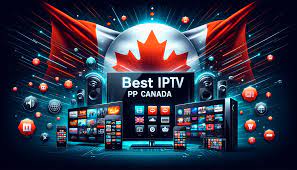In recent years, the way we consume television has undergone a significant transformation. Gone are the days when viewers were tethered to cable subscriptions and limited channel offerings. Internet Protocol Television (IPTV) has emerged as a game-changer, providing an alternative that offers greater flexibility, a wider array of content, and a personalized viewing experience. In this article, we’ll explore what iptv kopen is, its benefits, and its impact on the future of television.
What is IPTV?
IPTV stands for Internet Protocol Television. It refers to the delivery of television content over the internet rather than through traditional satellite or cable formats. IPTV utilizes the same technology that powers the internet, allowing users to stream television programs and films directly to their devices. This method can deliver live TV, on-demand content, and even interactive television services.
Unlike conventional broadcasting, which relies on radio waves or cable systems, IPTV transmits data in packets over the internet. This enables users to access content on various devices, including smart TVs, computers, tablets, and smartphones, as long as they have an internet connection.
How IPTV Works
The workings of IPTV involve several components:
- Content Sources: IPTV providers gather content from various sources, including television networks, studios, and user-generated content.
- Encoding and Streaming: Once content is obtained, it is encoded into a digital format suitable for transmission. This content is then streamed over the internet using various protocols, such as MPEG or HLS (HTTP Live Streaming).
- IPTV Middleware: This software layer acts as the interface between the user and the content. It provides features like channel guides, on-demand services, and user profiles.
- End-User Devices: Viewers can access IPTV services through a variety of devices, which may require a specific IPTV app or player.
Benefits of IPTV
The rise of IPTV comes with numerous advantages over traditional television services:
- Flexibility and Convenience: IPTV allows users to watch content on their terms. Viewers can pause, rewind, or record shows, giving them control over their viewing experience. With on-demand services, they can watch content whenever they want.
- Wider Content Selection: IPTV offers access to a vast library of content, including international channels, niche genres, and independent productions. This variety caters to diverse interests, allowing viewers to explore content they may not find on traditional platforms.
- Cost-Effectiveness: Many IPTV services provide competitive pricing, often significantly lower than cable subscriptions. Users can choose from various packages or pay only for the channels they want, potentially saving money.
- High Definition and 4K Streaming: IPTV providers often offer content in high definition or even 4K quality, providing viewers with a superior viewing experience compared to standard-definition cable broadcasts.
- Interactivity and Additional Features: IPTV can integrate interactive features, allowing viewers to engage with content. This may include options for live voting during shows, social media integration, and more.
Challenges and Considerations
Despite its advantages, IPTV is not without challenges:
- Internet Dependency: IPTV relies heavily on a stable internet connection. Users in areas with slow or unreliable internet may experience buffering or poor quality.
- Content Licensing: IPTV providers must navigate licensing agreements, which can affect content availability. Not all content may be accessible in every region due to licensing restrictions.
- Legal Concerns: Some IPTV services may operate in legal gray areas, offering access to copyrighted content without proper licensing. Users should be cautious and research the legitimacy of IPTV providers to avoid potential legal issues.
The Future of IPTV
As technology continues to evolve, IPTV is poised to shape the future of television. The growing popularity of streaming services, coupled with advancements in internet infrastructure, indicates a shift away from traditional broadcasting methods. More viewers are opting for customizable, on-demand content, pushing IPTV providers to innovate continually.
The integration of artificial intelligence (AI) and machine learning could enhance content recommendations, personalizing the viewing experience further. Virtual and augmented reality may also find their place in IPTV, providing immersive experiences that traditional TV cannot match.
Conclusion
IPTV represents a significant evolution in how we consume television. With its flexibility, extensive content library, and interactive features, it offers a compelling alternative to traditional broadcasting. As technology advances and internet connectivity improves, IPTV is likely to become an even more prominent player in the entertainment landscape, shaping how we engage with media in the years to come. For viewers seeking a modern, personalized, and cost-effective television experience, IPTV is undoubtedly worth exploring.

